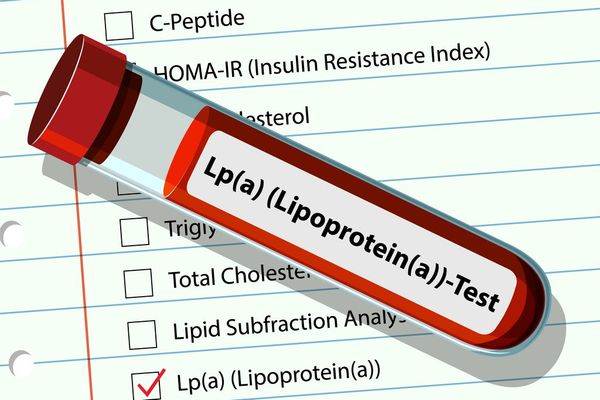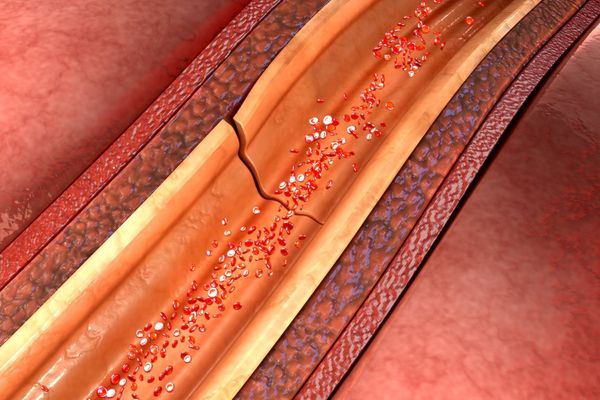With Heart Month upon us, it's important for women to know their risk factors for heart disease — and how it looks different from that of men. Often thought of as a man's problem, heart disease kills almost as many women as men each year in the United States.
The term heart disease refers to several types of heart conditions, including coronary artery disease, valve disorders, congenital defects, congestive heart failure, atrial fibrillation and heart attack. According to the Centers for Disease Control and Prevention, high blood pressure, high LDL (low-density lipoprotein) cholesterol, and smoking are key risk factors for heart disease. About half of all people in the United States (47%) have at least one of these three risk factors.
Although many risk factors are well known — smoking, poor diet, sedentary lifestyle — we're learning more about the link between mental health, particularly depression, and the risk of heart disease. Over the past 40 years, more than 60 prospective studies have examined the link between depression and the prognosis of people with known coronary heart disease. Research suggests that depression increases the likelihood of developing heart disease and stroke, even after considering factors such as smoking. This is important for women because they are twice as likely as men to develop depression.
Healthy stress — a wedding, baby's birth, graduation — can bring energy and an upbeat attitude. The days fly by; friends and family comment on your enthusiasm and happy mood. In contrast, however, negative stress — political events, serious illness, a child's erratic behavior or aging parents — can escalate to the point your body is reacting as if the danger is imminent and life-threatening. It's this heightened response that, once uncontrolled, can lead to heart disease.
It's important for women to develop a personal toolkit of sorts minimize stress. To that end, here are some suggestions to consider incorporating into your self-care practice:
Practice positive self-talk. Women can be terribly critical of themselves, especially of their bodies, hair, relationships, and parenting skills. Left unchecked, negative self-talk can lead to an endless stream of painful thoughts and limiting beliefs. Some forms of harmful self-talk include:
- Filtering – magnifying the negative aspects of a situation and filtering out the positive ones
- Personalizing – blaming yourself when something bad happens, even if you were minimally involved
- Catastrophizing – anticipating the worse regardless of whether a better outcome is likely
- Awfulizing – embellishing a negative experience out of portion overshadowing any positive aspects
- Polarizing – you see things only as good or bad; there is no middle ground and you feel trapped
Strive to catch yourself when you realize you are being overly critical of yourself. Don't say anything to yourself you wouldn't say to your best friend. Be gentle, refocus on a pleasant memory. In time, negative thoughts will float away more easily.
Practice relaxation techniques. At middle-age, the concept of relaxing may be limited to an annual vacation. However, even a few minutes daily to step aside, remain quiet, and focus on your breathing can help. Be persistent. Consider journaling ten minutes before bedtime. Take a yoga class on the weekend. Meditate before breakfast. Find small snippets of time when you think you're too busy to tend to yourself when just the opposite is true. Think of it as an investment in your best self.
Control clutter. One of the most common frustrations I hear from women is that they feel overwhelmed with appointments, texts, emails, and family duties. Most often women are the hub of the family's environment. Learning to say "no" is sometimes awkward, but necessary to regain a sense of steadiness. Asking for help is okay. Even a daily break from social media can bring a sense of restoration to an overly active mind. Make changes one step at a time until you feel more balanced and less stressed.
Take time for yourself. It's understandable that women feel shy taking time for themselves, especially at middle age when the responsibilities of homelife, career, and parental care can be intense. Rather than trying to find a way to fit everything in, try to find a way to leave some things out. While it's possible for women to "have it all" it's generally not possible at the same time.
And finally, when you celebrate Heart Month in February take a minute to thank someone who has touched your heart, helped you grow, or shown you the path forward. Being grateful for one's blessings in life and the people who made them possible is one the best ways to live with less stress and open your heart to a fuller life.






